(lubavitch.com) This past June, Rabbi Aryeh Sufrin received notice from Buckingham Palace that he was selected for a prestigious honor, to be bestowed upon him by Queen Elizabeth II. In recognition of his groundbreaking work tackling substance and alcohol abuse, the founder of Drugsline received an MBE, becoming a Member of the Order of the British Empire. Lubavitch.com spoke with him then about his organization’s achievements and his anticipation for his visit to the Palace to receive the MBE medal.
Sufrin met the Queen Sunday, October 25. Lubavitch.com caught up with the Chabad rabbi to find out how the day went.
I understand that you are a proud royalist. Tell us about the proceedings of the day when you received the honor.
Being at the palace was a very moving, humbling experience. I arrived with my wife and two of our children. They were taken straight to the ballroom. I remained with the other honorees where they told us which way to stand, how to turn, how to walk. They told us to bow our heads slightly to the Queen; they didn’t want us prostrating ourselves. An attendant placed a metal hook on the lapel of my jacket, so that the Queen wouldn’t have to fumble with the pin when she placed it on each of us.
We waited in the hall until our names were called.
My turn came. The Queen stands above on a platform which is about six inches off the ground. She attached the medallion to me and said, “It is my great pleasure to give you this award. I understand you work with drugs, it must be very rewarding. How long are you doing this for?” I replied that it was 18 years and she was visibly stunned. “Don’t you have a new building that my son Edward opened a few years ago?” We talked about that building, the event, and Drugsline. Then, when the conversation was over, she simply stepped back, without offering her hand.
I was so bowled over that this 83-year old woman, who greeted 90 different people that morning, was able to associate me with the building and her son. And she knew that I don’t shake hands with women.
After we left the room, they removed our medallions and put them in boxes with the day’s schedule. We returned to sit with the guests until the Queen was ready to leave. They sang “God save the Queen” and then she departed.
A local Member of Parliamentwho I am very close with made a reception for me at the House of Parliament. It is a short walk, and it was a beautiful, sunny day.
In the evening we hosted an event for the community at our Chabad House in NE London. The mayor and a Member of Parliament spoke before our 200 guests.
How does this tremendous recognition affect your work?
The award, recognition of the highest form in this country, has already opened doors for us, especially amongst official organizations here. It is not about the person, it is about the organization.
The award pushes the level of outreach we are able to achieve, in terms of our drugs work. And I hope we can capitalize on it for the greater good of Chabad-Lubavitch in this country. It is a humbling position, and it will help us achieve so much more than we already have.
You have children of your own. How old are they and are any of them involved with your Drugsline work?
I have five children, thank G-d. My oldest is 25 and my youngest is 11.
My second daughter is very involved with our work. She is studying psychology now and is actually employed in a government-funded post. She was chosen out of three finalists to be Drugsline’s volunteer coordinator.
It is a hefty job. She manages 60 volunteers, answers our emergency line, and responds to email correspondence. She came with me to the palace, because she is very into what we do here.
As a parent, how did you ensure that your children not get involved with drugs or other illicit activities?
I am often asked that question.
I think the most important thing is to be open and honest with our children. When they ask us questions, we must answer them (obviously with age-appropriate answers). If I don’t give them the answer, someone else will. And do we really want them getting these answers from other people?
Because of the work I do, and the fact that I often receive coverage in the media, my children do ask those hard questions. I hope that on the basis of the information I make available to them, they will make good choices.
Undeniably, it is a difficult time to be a teen, confronting real adult issues on a daily basis. What advice do you have for teenagers themselves?
When a teen approaches us with a problem, we must recognize their issues. We cannot pretend they don’t exist. We have a rule here at Drugsline: if someone comes with a problem, it is a problem (even if we don’t necessarily think it is). Recognize that what they say is real. Think about the tremendous courage it takes to ask for help to begin with.
Instead of becoming overwhelmed with their mammoth problem, teach them to deal with one particular area at a time. Let them solve it and it will build up their confidence in that area. It may be a tiny notch on the ladder, but in due course they can look back and see how much they have achieved.
Conclude one challenge and then go on to the next one.
Teens must realize that challenges are part of our development, our growth, our maturity. We will face challenges throughout our lives. Dealing with a particular struggle, in bite-size proportions, will give us the strength to overcome future challenges, without the temptation to turn to drugs, alcohol, or gambling.
Your work with Drugsline brings you in contact with so many different communities and people. How does your background as a Chabad representative and knowledge of Chasidic philosophy impact your work?
Many, many years ago, I was sitting with a local councilwoman to discuss a funding issue. She told me, “your salability is the fact that you are unique. Don’t change that.”
We must utilize the gift we have as Chabad representatives, our rich endowment of Chasidic teachings. We must nurture it, by setting aside time to learn and to rejuvenate ourselves so we don’t burn out. The skills I have learned [on the job as a Chabad rabbi] and the Chasidic teachings enable me to address any community on any issue, religious or otherwise.
We are a powerful organization. I hope that any new Chabad representative heading out to the field, feels that and uses the gift the Rebbe gave all of us.
I understand you will be speaking to your fellow Chabad rabbis, new and seasoned, at the upcoming gala banquet at the International Conference of Shluchim. Can you give us a sneak preview of that talk?
After I received the MBE from the Queen, Rabbi Moshe Kotlarsky [vice-chairman of Merkos L’inyonei Chinuch] asked me to present words of Torah to the audience. I told him that I hadn’t planned on attending the conference this year, there is just too much going on for me personally and with Drugsline to take off.
But, he’s very persuasive. I told him to give me 24 hours to think about it and then I would get back to him. He said, “don’t call me back. Take care of your arrangements and I will see you there.”
The next thing I know, the news that I will be speaking is on all the Chabad sites and people are telling me they heard I would be presenting. I never got back to him, but I guess I am going.
Even though I have been a pulpit rabbi for 26 years, this is a tough audience. Everyone is a rabbi.
My kids are teasing me that it takes me six minutes to say hello…and that’s all the time I’ve got.
Honestly, I need to think about what I will say. But I will definitely explain how the Rebbe’s blessings and influence have directly led to this honor.
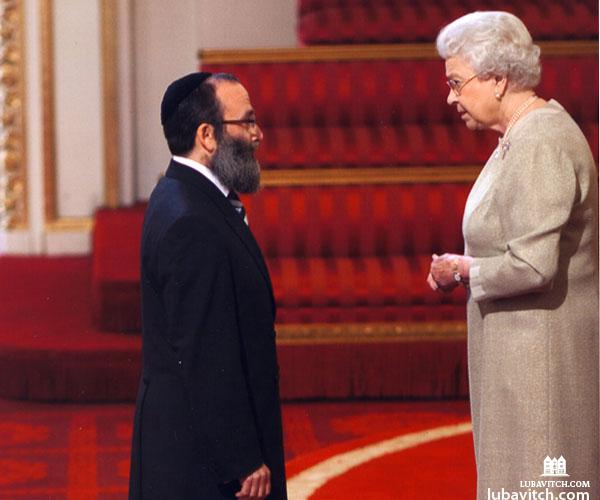
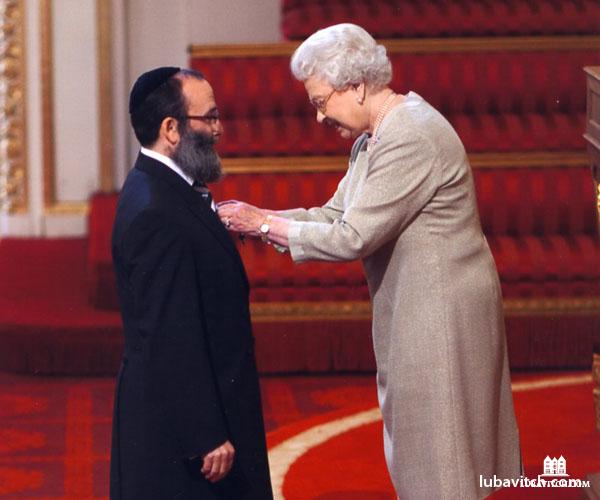
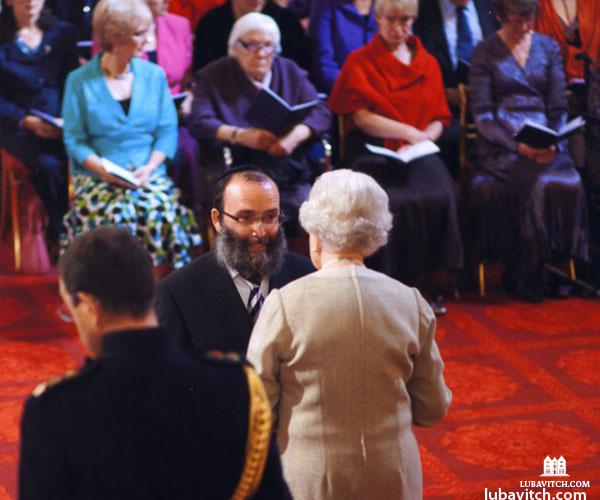
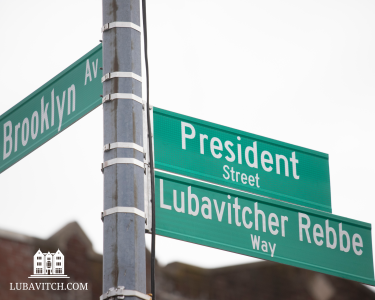
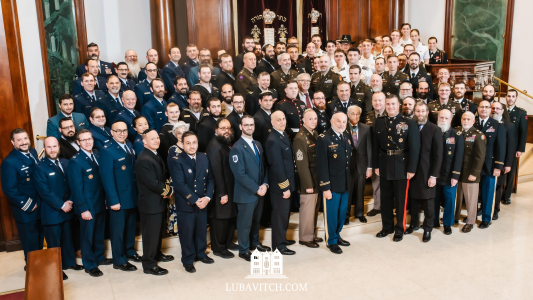
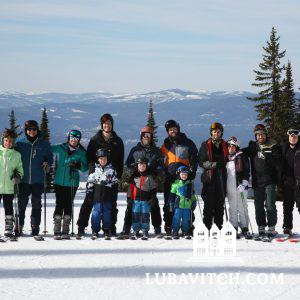
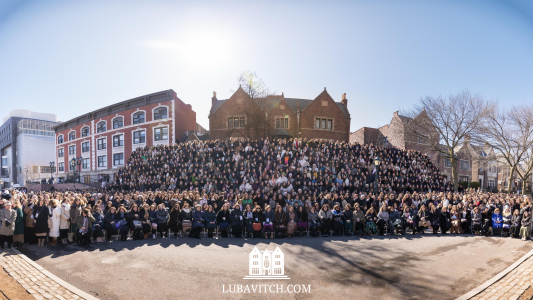
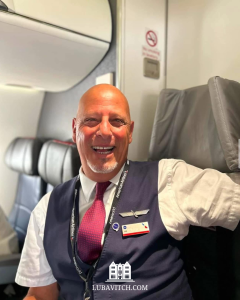




Be the first to write a comment.